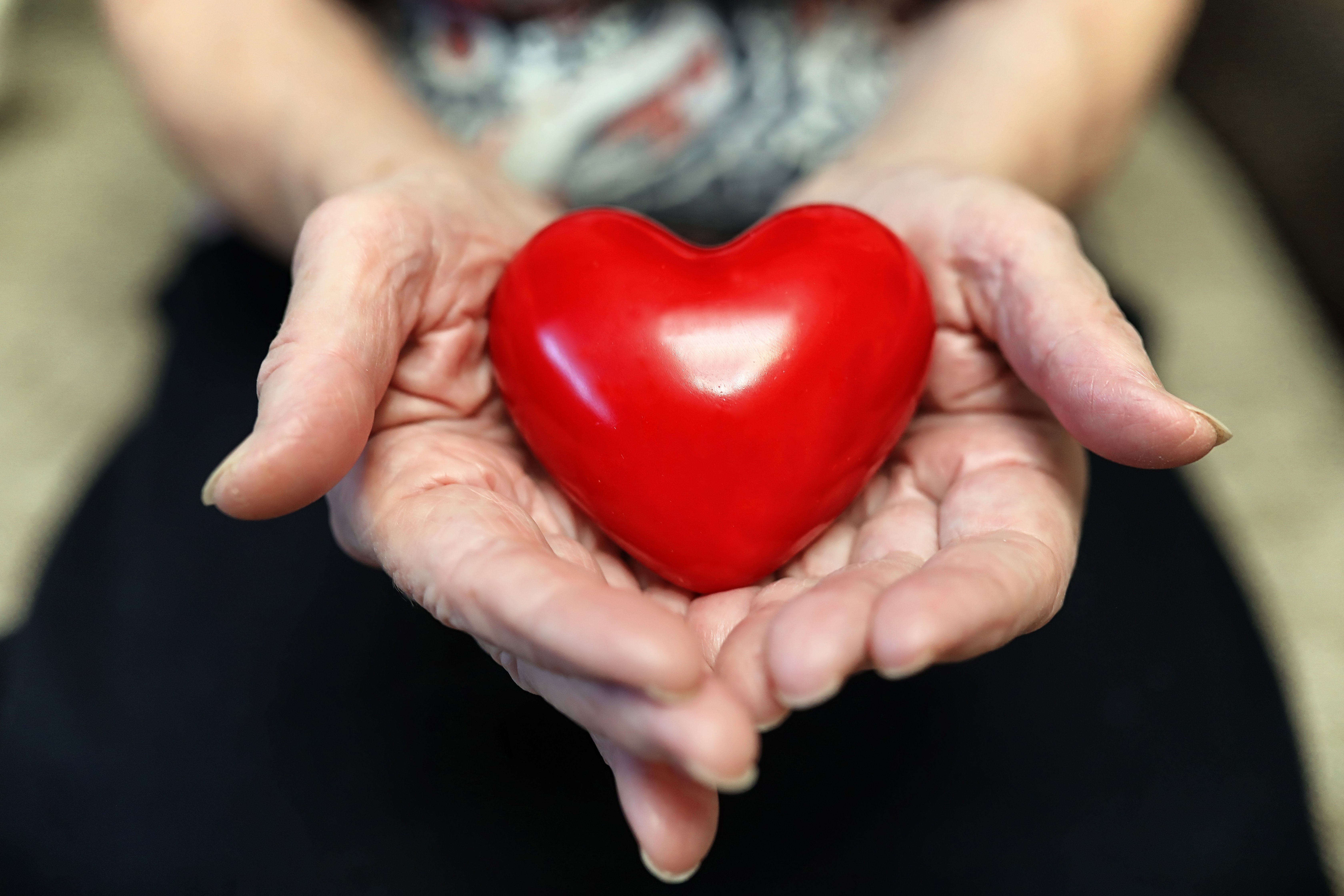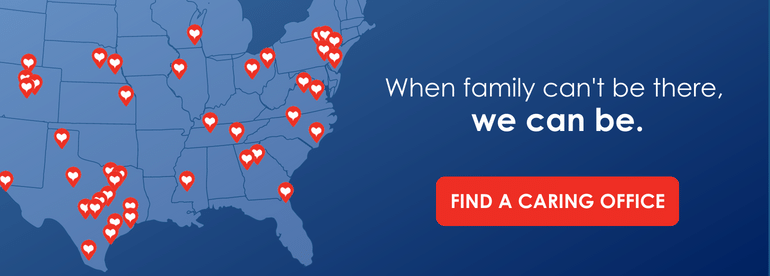Especially for seniors, it's impossible to overstate the importance of healthy circulation. Good circulation delivers oxygen and nutrients throughout the body and helps fend off cardiovascular issues like heart attack and stroke.
In many cases, poor circulation in seniors is related to an underlying medical condition that requires the attention of a physician. Though it's important to follow recommendations from you or your loved one's medical team, it's definitely possible to support seniors' healthy circulation through fun, enjoyable lifestyle choices. Here's an in-depth look at why a senior's circulation might be poor and how to increase circulation.
Symptoms of Poor Circulation
If you or a loved one has been diagnosed with a condition like high blood pressure, diabetes, or peripheral artery disease, you're probably already aware that you have poor circulation. However, many aren't even aware that they might have poor circulation.
Some of the most common symptoms of poor circulation include:
- Cold extremities —fingers, toes, hands, and feet
- Numbness or pins and needles in extremities
- Feeling tired all the time
- Experiencing muscle cramps
- Dizziness or lightheaded feeling
If you or a loved one is experiencing these symptoms — and you haven't been seen by a physician yet — it's a good idea to get checked out!
Causes of Poor Circulation
Every person is unique, and levels of circulation will vary for a variety of reasons. It's important to understand some of the more common causes of poor circulation in seniors:
- Changes in activity level. Levels of exercise and physical activity are directly linked to healthy blood flow, and exercise sometimes decreases as people age. As a result, researchers have found that seniors who don't exercise as frequently often have lower peak blood flow.
- Lifestyle choices. Researchers have found that moderately heavy drinking (3 or more drinks a day) can raise the risk of circulation-related heart issues like strokes. Similarly, smoking cigarettes is linked to worse circulation.
- Changes in heart and blood vessels. As we age, it's natural to experience some changes in the heart and blood vessels that impact circulation. For example, capillary walls may decrease slightly, while the aorta (main artery from the heart) can become less flexible. These changes, along with others, can make the heart work harder and contribute to decreased circulation.
- Diabetes. This common disease has a direct relationship with circulation. It causes blood vessels in the lower extremity to become harder and narrower, decreasing blood flow.
- High blood pressure. Being diagnosed with high blood pressure can make your heart work harder and have a negative effect of circulation.
- Weight gain. If you or a loved one is overweight, this can lead to worse circulation by making your body work harder to pump blood.
- Heart Conditions. Heart conditions like peripheral heart disease, deep vein thrombosis, arteriosclerosis, and varicose veins all contribute to poor circulation. These are all serious medical conditions that require consultation with a physician.
How to Increase Circulation
Though it's important to consult with a physician — especially if you or a loved one has been diagnosed with high blood pressure or heart disease —there are plenty of simple ways that seniors can increase circulation.
1. Get Moving
One of the best things you or your loved one can do to boost circulation is simply engaging in regular exercise. This doesn't mean you have to spend hours at the gym. In fact, one study of women 60 and older found that brisk walking for 30-50 minutes per day just 3 or 4 times a week can significantly improve blood flow.
You might want to incorporate some of these moderate exercises into your lifestyle:
- Take daily walks with friends and family.
- Go swimming for joint-friendly, low-impact exercise.
- Take a dancing class that has the added benefit of socializing and connecting with others.
- Learn stretches and exercises you can do at home to boost circulation and stay healthy.
Exercising will not only help you boost circulation on its own but can only help combat-related issues like weight gain.
2. Get a Massage
In case you needed an excuse to seek out a relaxing massage, it's a fact that getting regular massages can provide your circulatory system with a boost. In addition to providing benefits to your circulatory system by promoting relaxation and stress relief, massage stimulates your lymphatic system and venous system — helping to move lymph and blood around your body more efficiently.
If you have medical issues, like heart disease or diabetes, it's important to seek clearance before scheduling a massage. Otherwise, enjoy reaping the soothing and therapeutic benefits of this ancient technique!
3. Quit Smoking
You're probably already aware that smoking cigarettes are harmful to many of the organ systems in your body. Cigarettes damage your heart and blood vessels, which can lead to dangerous conditions like arteriosclerosis. In arteriosclerosis, your arteries accumulate plaque, which makes it more difficult for blood to flow and significantly decreases circulation.
By quitting smoking, you can make an incredible difference to your circulation and your overall health. Don't be afraid to ask for help from friends and family, and remember that millions of people have successfully quit smoking cigarettes.
4. Eat Healthy & Stay Hydrated
The American Heart Association recommends eating a heart-healthy diet to boost circulation and improve overall health. In addition, eating healthy can help seniors to lose weight, which is important when managing healthy circulation.
To get heart-healthy, limit sugary beverages, red meat, excessive sodium, and trans-fats. Instead, focus on incorporating plenty of fruits and vegetables into your diet. Replace white bread with whole grains, eat nuts and legumes, and focus on low-fat dairy products. In addition to following an overall healthy diet, some of these foods might be a valuable asset to your circulation:
- Foods rich in Omega-3s: oily fish like sardines and tuna, walnuts, flax seeds, and fish oil.
- Foods rich in Vitamin E: leafy green vegetables, whole grains, nuts, and seeds.
- Foods rich in Vitamin C: oranges, red peppers, berries, and broccoli.
In addition a healthy diet, it's important to avoid dehydration — which can an immediate negative effect on healthy circulation. Try to limit diuretic beverages like coffee, and instead focus on drinking at least eight glasses of water a day.
5. Take a Trip to the Sauna
If cleared by your doctor, a trip to the sauna can be a great (not to mention enjoyable!) way to boost circulation. Humans have been using a sauna for thousands of years in various cultures —Mayan, Roman, Finnish, and beyond — as part of a healthy lifestyle.
Though many think of them as a simple way to relax and unwind, saunas also have a unique effect on your blood vessels. Because of the extra heat, your pulse rate increases, and the amount of blood that your heart pumps nearly doubles. Because saunas have such an immediate and dramatic effect on increasing circulation, it's important to get a physician's approval before treating you or a loved one to a relaxing day at the sauna.
6. Reduce Stress
Did you know that the hormones related to stress can be very harmful to your circulatory system? By decreasing stress, you can help support a stronger cardiovascular system. There are so many great ways that seniors can not only reduce stress but improve their quality of life:
- Meditate daily
- Partake in beloved hobbies (drawing, painting, music, journaling, etc.)
- Engage in an active social life with loved ones
- Attend a yoga class
- Learn calming deep breathing techniques for stressful situations
- Take a fun day trip to refresh and invigorate your mind
7. Put your Feet Up
Sometimes the best advice is also the most simple. And for many people, boosting circulation to the extremities can be as simple as putting your feet up at the end of the day. Because your veins have to work extra hard to transport blood from your legs all the way up to your heart, elevating your legs can help take the pressure off.
If you can, elevate your legs at a 45-degree angle for around 15 minutes at a time. Take this as an opportunity to decrease stress, relax, meditate, or catch up with some reading or a favorite TV show.
If you or your loved one is suffering from poor circulation, it's important to stay connected to your healthcare team to manage any underlying conditions. However, incorporating simple lifestyle changes like stress management, a healthy diet, and daily exercise can have a massively positive effect on circulation. For more tips and information on living your healthiest life as a senior — or supporting your loved one — please contact us at Caring Senior Service today.


